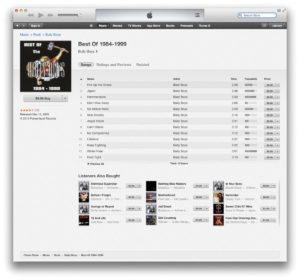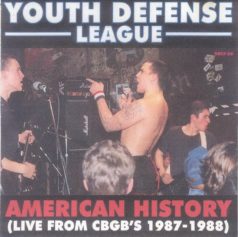
Racist hate music is more about influence than making money. The Intelligence Report, by the Southern Poverty Law Center, says that the racist music business was a multimillion-dollar industry in the 1990s. The genre also doubles as a recruiting tool.
In 1999, the National Alliance, formerly the most prominent neo-Nazi organization in the U.S., bought Resistance Records and were selling more than 70,000 CDs annually by the early 2000s.
Even though the sale of physical copies has slowed, the SPLC says that iTunes and other distributors have provided a “new and unprecedented tool to effectively distribute hate music.”
An investigation into hate music by the SPLC revealed that as of September 2014, there were 54 “white power” bands with songs being sold on iTunes. After the report was released, Apple removed only 30 of the groups as of Wednesday, according to The Daily Beast.
According to the SPLC report, iTunes’ “Submission to the iTunes service” says that submitted materials “shall not infringe or violate the rights of any other party or violate any laws, contribute to or encourage infringing or otherwise unlawful conduct.”
Despite the policy, songs like “Jigrun” by the Bully Boys were being sold on iTunes.
Part of the song says, “We’re going on the town tonight / Hit and run / Let’s have some fun / We’ve got jigaboos on the run / And they fear the setting sun.”
The mainstream media caught on to the influence of hate music after Wade Page, the white supremacist who killed six people at a Sikh temple in Wisconsin, was known to have played in a few “white power” bands.
While Apple took some action, Amazon and Spotify still allow the hate music to be sold and purchased.
Bands such as Skrewdriver, Max Resist and Brutal Attack are available for download on Amazon even though its policies claim that offensive products are prohibited from its site.
Spotify bases its removal of content according to Germany’s Federal Department for Media Harmful to Young Persons.
“We take this very seriously…We’re a global company, so we use the BPjM [Bundesprüfstelle für jugendgefährdende Medien/Germany’s Federal Department for Media Harmful to Young Persons] index as a global standard for these issues,” Spotify said in an e-mail to The Daily Beast. Content not removed by the index is handled on a “case by case basis,” the company added.
As of this week, Spotify hadn’t removed any hate music.
